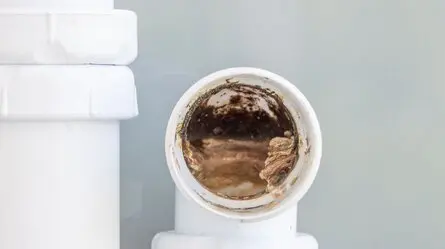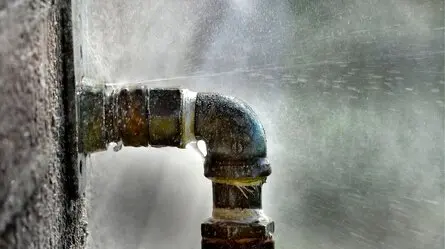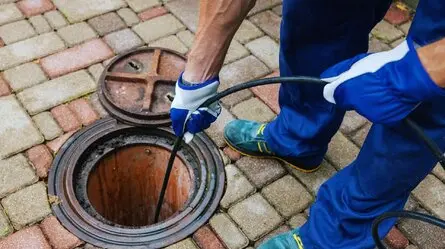Spotting plumbing problems isn’t always straightforward. Deterioration often creeps up so slowly that you might not notice until it’s too late.
Corroded pipes, if unnoticed, can cause major headaches like burst pipes. However, spotting corrosion early allows you to take action before things get worse.
Here are six clear signs to watch for if you suspect corrosion. It could be something as subtle as a change in taste when you brush your teeth or a more serious issue.
Understanding Corrosion: What Causes Your Pipes to Deteriorate?
Corrosion naturally happens when metal pipes are exposed to different elements, causing them to wear down. If pipes are corroded, it means the metal’s reacting with its environment, often due to moisture, which changes its chemical makeup. This process speeds up in conditions with plenty of moisture, oxygen, and other corrosive elements.
The problem is especially prevalent in water pipes, where the constant flow of water can introduce too many minerals, contributing to the corrosion process. Over time, these corroding pipes may start to deteriorate, causing a range of issues from reduced water flow to potential pipe failure. The interaction between the metal pipes and the water flowing through them, especially if the water has a high mineral content, can weaken the pipes’ structural integrity.
Corrosion is critical in pipe maintenance and failure prevention. Being aware of the signs of corroded pipes can help you take early action and prevent more serious damage to your water flow system, ensuring the longevity and efficiency of your plumbing infrastructure.
6 Signs Of Pipe Corrosion
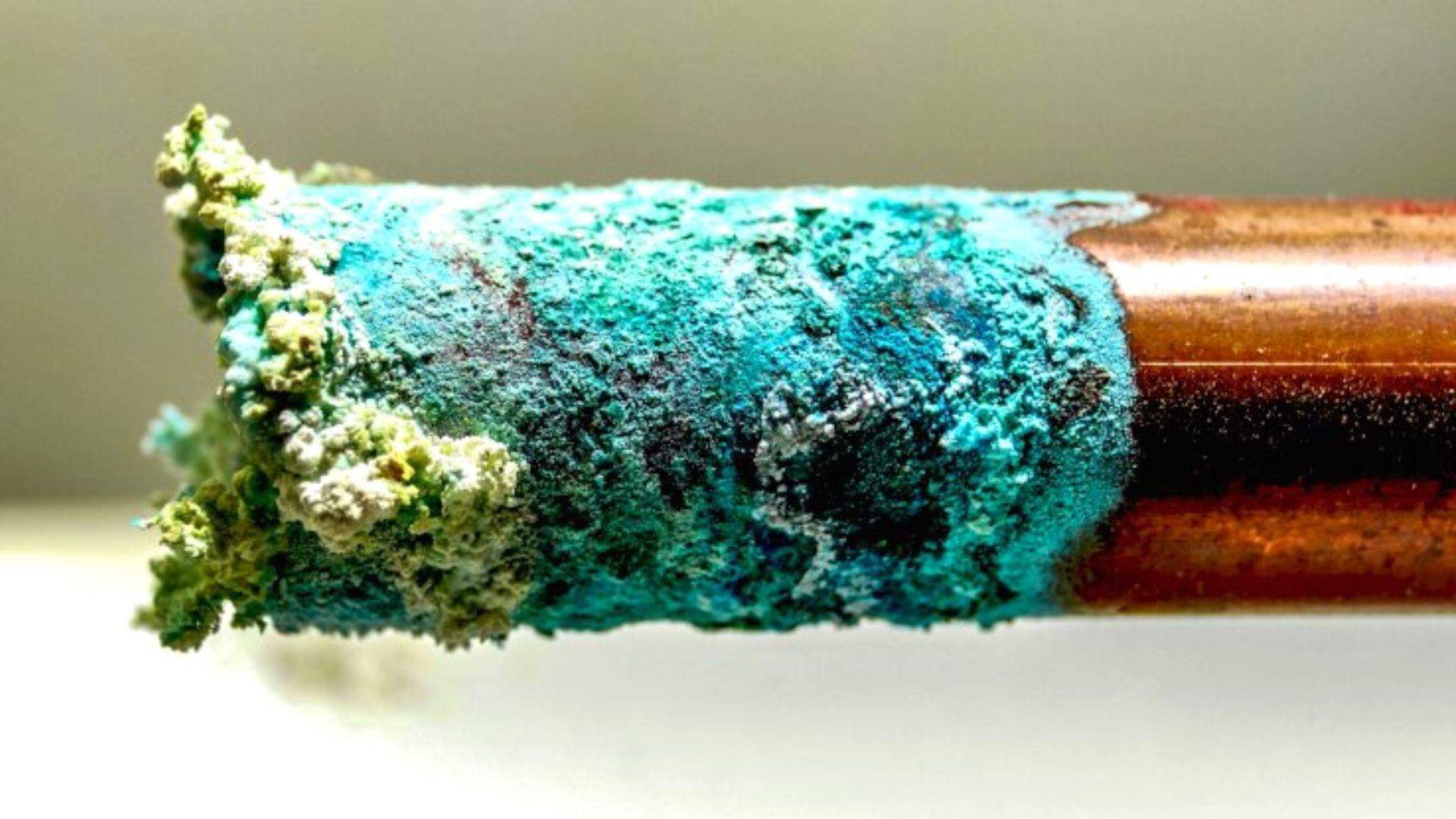
1. Leaks
Leakage is one of the telltale signs of a plumbing fault. If your pipe is clogged or corroded, it may not be able to hold water as effectively, resulting in leaks. If the corroded pipe is exposed, you can spot the spills relatively quickly. However, leaks become more difficult to catch if your pipe is in a wall.
2. Water Discolouration
Discoloured water is a clear giveaway of rusting pipes. It often comes with a strong smell and taste. While not harmful, you might want to avoid drinking it.
However, discoloured water might also point to causes other than rusted pipes. Sediments or water table shifts can cause rusty brown water. So, there’s no reason to be alarmed when it happens, but it’s good to check your piping system.
3. Clogs
While clogged pipes aren’t necessarily an obvious sign of corrosion, frequent clogs are. Debris builds up in your pipes as it erodes and eventually creates a block. Ultimately, it may lead to cracks in the pipe or cause them to burst, causing a problem that is difficult to contain.
If you find yourself clearing your pipes out frequently, it may be time to have a professional check your plumbing system. After all, a problem that is prevented is money saved!
4. Low Water Pressure
Corroded copper pipes can’t hold water effectively, leading to leaks or clogs. However, they may also lead to another issue: reduced water pressure. The older your plumbing system, the worse the problem with poor water pressure becomes.
When you encounter this issue, it’s a good idea to replace your pipes. After all, rusted pipes may not stay intact for long, and if they are not fixed, you could end up with burst pipes.
5. Foul Taste
While tap water might not turn brown or give off an unpleasant odour, increasing minerals will undoubtedly give it a metallic taste. It could be an issue with the water supply or a sign of deteriorating plumbing.
If tap water has an unpleasant metallic taste, stop drinking it and have it inspected to determine whether it’s fit for consumption.
6. Visible Signs Of Corrosion
Spotting outer oxidation is one of the simplest ways to check for corroded plumbing. Keep in mind, though, this is only visible on exposed pipes.
If your pipes are coated in an unusually coloured powdery substance, it may be a sign of corrosion. For instance, copper pipes turn a bluish-green upon oxidising.
Reasons For Pipe Corrosion
From age to water quality, there are several reasons your plumbing might rust.
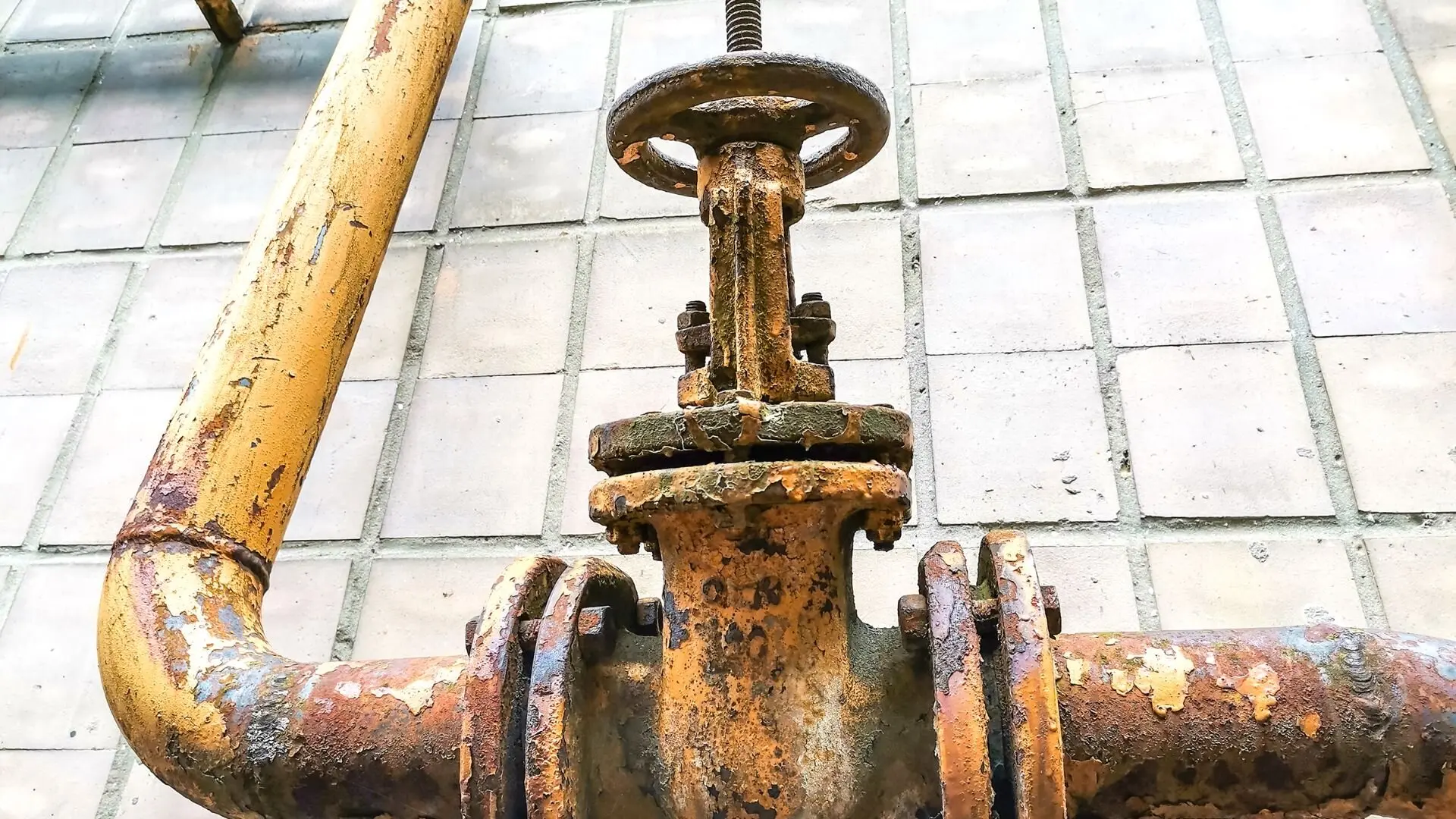
1. Water Temperature
Metals oxidise quickly in the presence of moisture and heat, resulting in a coat of rust on the pipe’s surface. Rust builds up inside your pipes, causing them to weaken and clog.
If left unattended, the metal of your pipes will grow steadily thin and may develop cracks, leading to more severe problems.
2. Low Water pH
A lower pH value means the water is acidic. The more acidic the water, the more reactive it is with the metal of your pipes. Copper pipes are especially susceptible to rusting because of this.
3. High Water Velocity
High water velocity can lead to corrosion over time, especially if the water is warm. This is especially true with irregularities in your pipes, which are more likely to erode when water passes over them rapidly.
4. Chemicals
The excess chemicals in your water could erode your pipes quickly. Drain cleaners are a common cause due to their chemical framework, which reacts to the metal in your pipes and corrodes them over time.
Are Your Pipes Corroding?
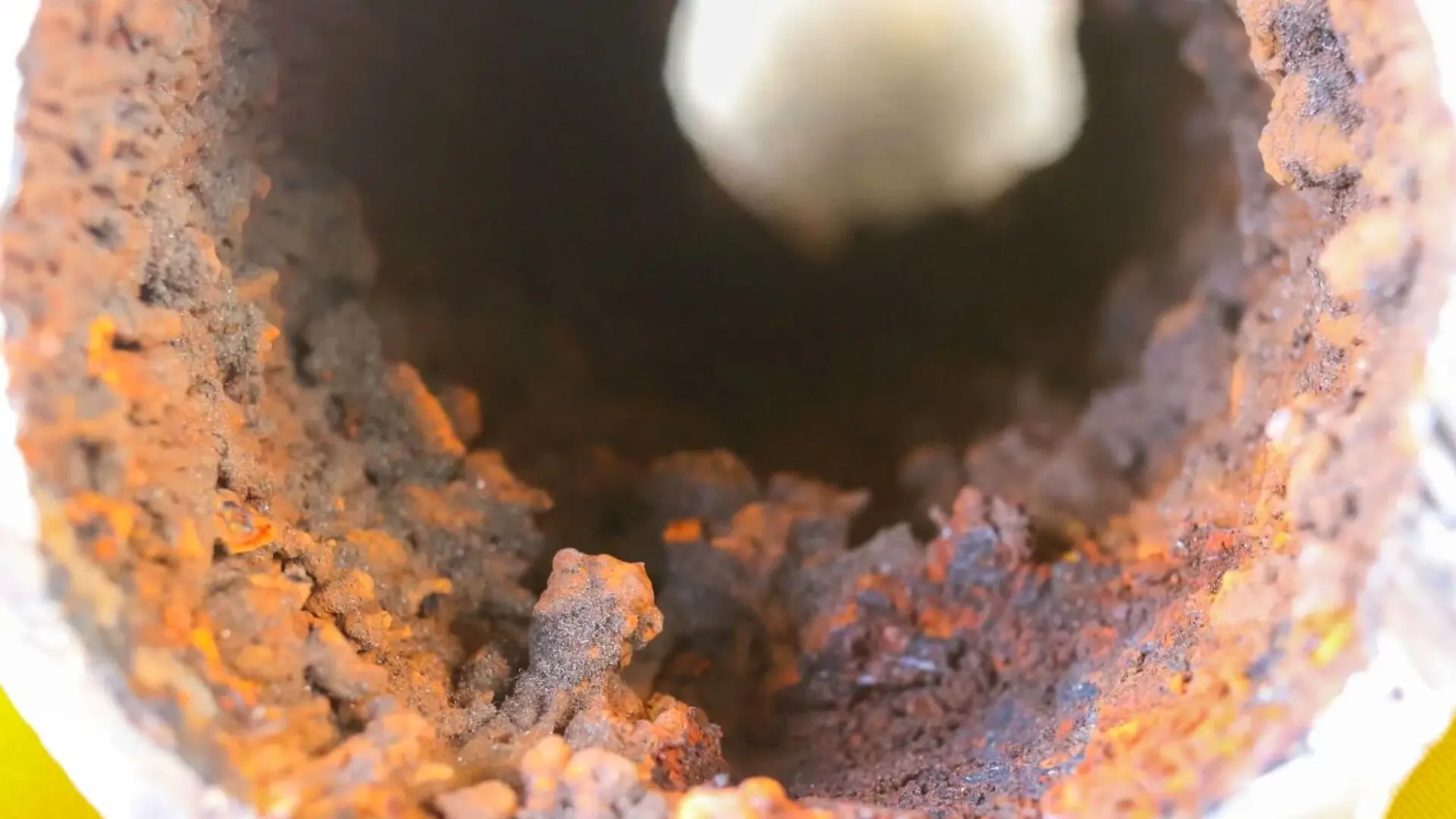
With this guide, you can identify pipe corrosions before they cause further harm. Remember to avoid using chemical drain cleaners to clean your plumbing systems, and watch for warning signs such as discoloured water. A strange taste and even hard water build-up.
Unnecessary disturbances may lead to more extensive damage and worsen the problem. So, it’s best to leave it to the professionals when dealing with corroded pipes.
Spotting these signs early is crucial to the longevity of your plumbing system. This will also help you prevent any monetary damages before they even happen. Our professional plumbers in Perth at Woolf Plumbing & Gas are here to help if you are experiencing problems with corroded pipes before they cause further damage. Contact us today for fast and effective pipe repairs and replacements.


